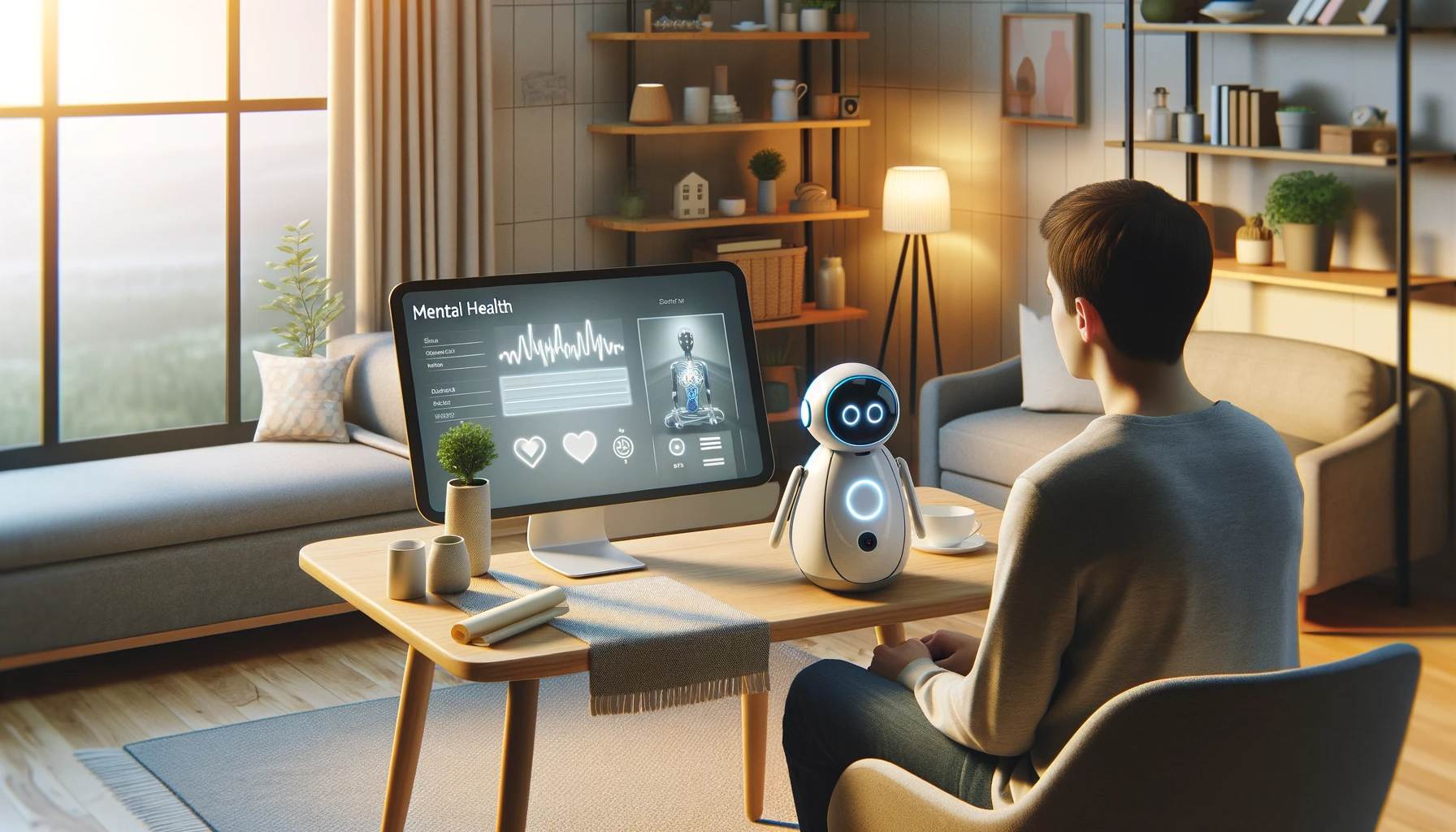In recent years, mental health has emerged as a critical issue in global health discourse, with increasing awareness and concern about its impact on individuals and societies. Mental health disorders, ranging from common conditions like anxiety and depression to more severe forms such as schizophrenia and bipolar disorder, affect millions worldwide, transcending age, gender, and socioeconomic boundaries. The World Health Organization has emphasized mental health as a key area of public health, highlighting the necessity for effective management and treatment.
One of the primary challenges in the realm of mental health is the early detection and intervention of conditions. Often, mental health issues go undiagnosed and untreated for extended periods, leading to worsening symptoms and more complex treatment requirements. The reasons for this delay are multifaceted, including stigma, lack of awareness, and inadequacies in healthcare systems. Timely identification and intervention are crucial for effective treatment and can significantly alter the course of a mental health condition.
Against this backdrop, this article explores the potential of Artificial Intelligence (AI) in revolutionizing the field of mental health. AI’s advanced analytical capabilities offer promising avenues for identifying early indicators of mental health issues, thereby enabling timely and potentially life-saving interventions. The integration of AI in mental health care not only promises to enhance diagnostic accuracy but also opens up new possibilities for personalized treatment approaches. This exploration delves into how AI is poised to transform the landscape of mental health diagnosis and care, offering hope for more effective management of mental health conditions worldwide.
Understanding Mental Health Challenges
Mental health disorders, encompassing a wide range of conditions such as anxiety, depression, bipolar disorder, and schizophrenia, significantly impact the lives of individuals and communities globally. These conditions can lead to severe emotional, behavioral, and physical health problems, affecting daily functioning and quality of life. Mental health issues are also linked with increased risk of chronic diseases, social isolation, and even reduced life expectancy.
The importance of early detection in mental health cannot be overstated. Identifying mental health conditions at an initial stage can lead to more effective management and treatment, potentially preventing the progression to more severe stages. However, early detection is fraught with challenges. Stigma surrounding mental health often leads to reluctance in seeking help. Additionally, symptoms of mental health conditions can be subtle or misinterpreted in the early stages, making diagnosis complex.
The current state of mental health care and diagnosis involves a combination of clinical evaluation, self-reported symptoms, and psychological assessments. However, these methods can sometimes be subjective and reliant on the individual’s willingness and ability to communicate their experiences. As a result, there is a growing need for more objective and efficient diagnostic tools and methods in mental health care.

Introduction to AI in Mental Health
Artificial Intelligence (AI) in healthcare represents a convergence of advanced technology and medical expertise. In mental health, AI and its relevant technologies such as machine learning and natural language processing (NLP) are emerging as vital tools. Machine learning algorithms can analyze complex datasets to identify patterns and correlations that might elude human clinicians. NLP allows computers to interpret and analyze human language, providing insights into an individual’s mental state based on their speech or written words.
The role of AI in mental health care is expanding, with potential applications in enhancing diagnosis, personalized treatment planning, and patient monitoring. AI can assist clinicians by providing data-driven insights, thus complementing traditional diagnostic methods. This technology’s potential lies in its ability to process vast amounts of data quickly and accurately, which is crucial in mental health where early detection and intervention can have a significant impact on treatment outcomes.
AI in Detecting Early Warning Signs of Mental Health Issues
AI’s capabilities in identifying early indicators of mental health conditions are groundbreaking. These technologies can analyze various data types – from speech patterns and facial expressions to social media behavior and biometric data – to detect subtle signs of mental health issues.
For instance, AI applications in analyzing speech patterns can reveal changes in tone, speed, and language that may indicate depression or anxiety. Similarly, AI tools can monitor social media usage and interactions to detect changes in mood or behavior. This includes analyzing the sentiment of posts or the frequency of social interactions, which might signal mental health concerns.
Biometric data, such as sleep patterns, physical activity levels, and heart rate variability, can also be analyzed using AI to identify potential mental health issues. These physiological markers, when combined with other data, can provide a comprehensive picture of an individual’s mental state.
Several case studies illustrate the efficacy of AI in early mental health diagnosis. For example, a research project used machine learning to analyze speech patterns and successfully identified individuals with PTSD. Another instance involves an AI-powered app that assesses users’ mental health based on their smartphone usage patterns, offering timely interventions.
These applications underscore AI’s potential in enhancing early detection of mental health conditions, paving the way for timely and effective interventions. The integration of AI in mental health diagnostics signifies a shift towards more proactive and preventive care, offering hope for improved outcomes in mental health treatment.
AI-Driven Interventions and Support
Artificial Intelligence (AI) is increasingly being used to provide timely and effective interventions for mental health care. One of the critical areas where AI is making a substantial impact is in the development of personalized care plans. By analyzing patient data, AI algorithms can help clinicians create tailored treatment plans that address individual needs more accurately. These AI-driven plans can consider a range of factors, including symptoms, lifestyle, and even genetic information, to enhance treatment efficacy.
Another innovative application of AI in mental health is therapy chatbots. These AI-powered tools engage with individuals, providing immediate support, guidance, and assistance. They can recognize speech or text patterns indicative of mental distress and offer appropriate responses or exercises. For example, Woebot and Wysa are chatbots that use cognitive-behavioral techniques to interact with users, helping them manage anxiety and depression symptoms.
Predictive analytics, a significant component of AI in healthcare, is also being applied to forecast treatment outcomes in mental health. By analyzing patterns from historical data, AI can predict how likely a patient is to respond to a particular treatment, thereby assisting in making more informed decisions about care.
Examples of AI-driven tools in mental health include smartphone apps that track mood changes and suggest interventions, platforms that use machine learning to analyze clinical data and predict relapse in conditions like schizophrenia, and online tools that provide cognitive behavioral therapy (CBT) tailored to the user’s responses.
Benefits and Challenges of AI in Mental Health Care
The use of AI in mental health care presents several advantages, particularly in early detection and intervention. AI tools can process vast amounts of data much faster than humans, identifying patterns that may indicate the onset of a mental health condition. This ability facilitates early intervention, which is often crucial for effective treatment. Additionally, AI can help reduce the stigma associated with mental health by providing anonymous, yet supportive, AI-driven tools and resources.
However, the integration of AI in mental health care also brings significant challenges and ethical considerations. Data privacy is a major concern, as mental health data is highly sensitive. Ensuring the accuracy of AI diagnostics is crucial, as incorrect predictions can lead to inappropriate treatment plans. There is also a concern about the over-reliance on technology in mental health care, potentially leading to reduced human contact in therapy, which is essential for many patients.
The balance between AI assistance and human clinical judgment is therefore critical. AI should be seen as a tool to support, not replace, human decision-making in mental health care.

The Future of AI in Mental Health
Looking ahead, the future of AI in mental health care seems poised for further growth and innovation. Future trends may include more advanced natural language processing algorithms capable of detecting subtle nuances in speech and text indicative of mental health issues. Integration of AI with other technologies like virtual reality (VR) could also provide more immersive therapy experiences.
The long-term impact of AI on mental health diagnosis, treatment, and global health systems could be significant. AI has the potential to make mental health care more accessible and efficient, particularly in underserved areas. However, it is crucial to integrate AI into mental health care while ensuring patient safety, maintaining ethical standards, and preserving the essential human elements of therapy.
Conclusion
In conclusion, AI holds significant promise in transforming the landscape of mental health care. Its role in detecting early warning signs of mental health issues and providing timely interventions could revolutionize how mental health conditions are managed and treated. The benefits of AI in this field are substantial, offering the potential for more personalized, efficient, and accessible mental health care.
However, it is essential to navigate the challenges and ethical considerations that accompany the use of AI in mental health. The balance between technological innovation and the preservation of human-centric care is crucial. Looking forward, the advancements in AI offer exciting prospects for enhancing mental health care and overall well-being, but they must be approached with careful consideration and a commitment to ethical standards. The future of mental health care with AI appears promising, with the potential to significantly improve the lives of those affected by mental health conditions.
